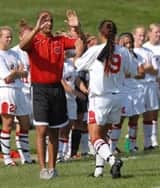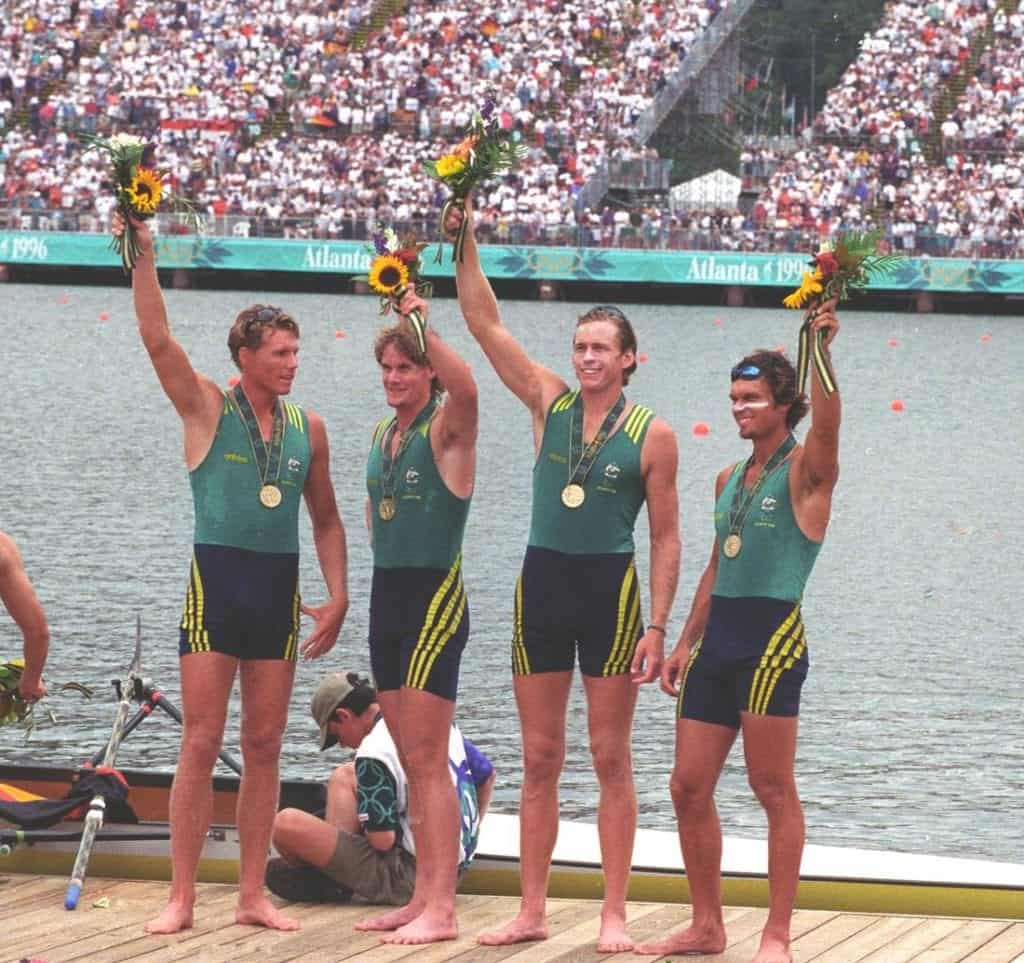By Bo Hanson – 4x Olympian, Coaching Consultant & Director of Athlete Assessments
Every coach would have experienced an athlete personality clash in their team which has completely, or in part, contributed to the de-railing of their season. If your team has yet to have an athlete personality clash, well you are still in the Forming Stage of Team Development and the clash is just around the corner.
There is not a coach we have worked with who has not experienced an athlete personality clash which has led to at least some poor levels of morale. The most important aspect to dealing with these clashes is to address them at the earliest possible time, i.e. before molehills become mountains. Managing athlete personality clashes, and their resulting conflict effectively is mainly about setting a framework to understand how conflict starts, noticing it at the lowest level and then being proactive and honest in dealing with it. In this article we will discuss how using DISC, particularly in the preseason, will help your team start on track and stay that way.
Who is right in a Personality Clash?
When a athlete personality clash occurs, who is right? Quite often we are programed to think that we must be right because this is the way we behave and it works for us. However the other person involved in the conflict may have the exact same reasoning. The truth is there is no right or wrong answer in this situation. At some stage everyone involved in the conflict has have to subscribe to what is right for the team. This is the common goal and it is critical to set those foundations in the beginning.
Using DISC to manage conflict keeps conflict as an objective behavioral issue rather than a personalized subjective accusation of an individual. When conflict becomes personal it becomes unproductive and undermining for your ultimate goals for the season. So when we think of these clashes, should we really be thinking of them as “personalities” clashing? They are better referred to as behavioral clashes, and they can occur between team members, coaching staff, or even between coaches and athletes.
Behavioral Clashes between a Coach and an Athlete
Some coaches will really struggle to coach a specific type of athlete. They will find certain athletes really easy and natural to coach, but with others it can be like pulling teeth. So why does this happen? Well it has to do with behavioral styles. Coaches have a certain way they like to go about coaching, their Coaching Style. Athletes will also have their preferred way of being coached. When coaches don’t understand why their athletes are not responding to their coaching it causes frustration for all involved. Similarly, when athletes don’t understand why their coach continues to coach them in a way which does not suit them, it causes strain on the critical coach athlete relationship.
As a coach you may be highly attentive to the athletes in your team. You may make a point of checking in with them personally before each training session to see how they are. This could mean that you an Influence (I) or Steady (S) style of coach, focusing on people more than tasks. However if you are coaching a Conscientious (C) style athlete, who values tasks, they may feel that you are wasting time on chit chat.
It is important for athletes to be able to appreciate where you are coming from as a coach, and vice versa. If the athlete feels like the coach is actually trying to understand them, half the battle is already won. Once coaches become aware of their own behavioral style, and gain insight into their athletes’ behavioral styles, mutual understanding is built. Using the CoachDISC and AthleteDISC profiles, you can easily assess your own coaching behavioral style, and the behavioral style of athletes on your team.
Behavioral Clashes between Athletes
In teams, some athletes will “click” from the get-go, whilst others may be involved in conflict all season long. So why does this happen? In the same way as conflicts between coaches and athletes, clashes between team members occur when athletes don’t understand where others are coming from. As an example, Dominance (D) Style athletes will arrive for training and want to get down to practice straight away and work on the task at hand.
Other behavioral profiles, such as the Influence (I) Style will want to have a casual chat about their weekends or something equally off topic before start training. The I’s prioritize people and relationships, over tasks, whilst D’s do the opposite. Neither profile is wrong, they both just have different approaches to how they go about their training.
However, if athletes aren’t aware of other profiles on their team, or don’t appreciate why their team members behave in a way different to themselves, these differences in behavior can become a conflict within your team.
The unique diversity in behavioral styles on your team is a positive, and should be treated as such. Successful teams tend to have healthy diversity within the behavioral profiles. If one behavioral style is heavily oversupplied, then you may difficulty assigning roles as your athletes will all want to do the same thing.
To fully and accurately understand their team’s dynamics, coaches can turn to the AthleteDISC Profiling System. Once the individual athletes within your team have been profiled, we can then generate the Team Dynamics Report showing how the individuals combine as a team, the pattern of different styles of athletes, and key coaching strategies for the dynamic of the team. Read more in our article Understanding Team Dynamics – Using DISC to Create High Performance Teams.
How to Limit the Negative Effects of Behavioral Clashes
So how can you reduce the behavioral clashes on your team? DISC can give you answers ahead of time, and help you understand why these clashes may occur between different behavior patterns within the team. One of the most effective ways to limit the behavioral clashes is to have everyone aware of the behavioral profiles within in a team from the very start of the season. Having a conversation with a team in their pre-season, and showing them the obvious clashes that may occur between the different DISC profiles in their Team Dynamic is one of the easiest ways to make sure that everyone is starting on the same page.
The DISC model helps you understand the likely issues which could occur between athletes or coaches so you can implement strategies to minimize the effect of conflict ahead of time. DISC ensures that the unique behavioral diversity on your team is utilized as a strength rather than letting it become a negative.
If you would like more information on how DISC can be your competitive advantage, see our articles on the Importance of Profiling, Team Dynamics, the AthleteDISC or CoachDISC.
At Athlete Assessments, we’re here to provide you with excellence in service and here to help you be your best. If there is anything we can assist you with, please Contact Us.




